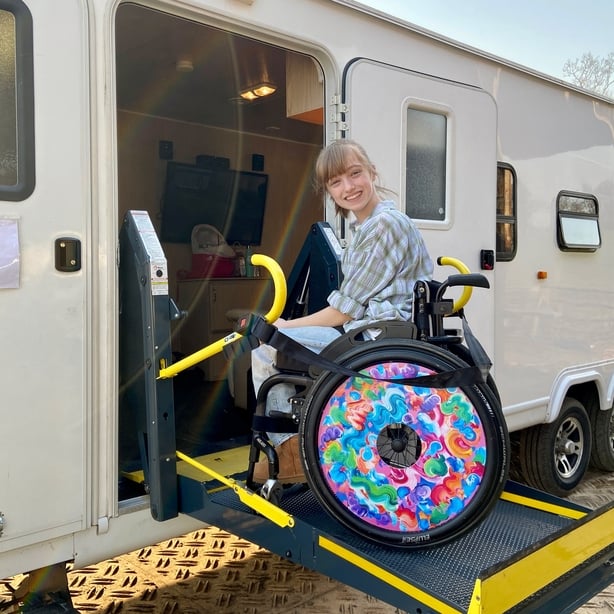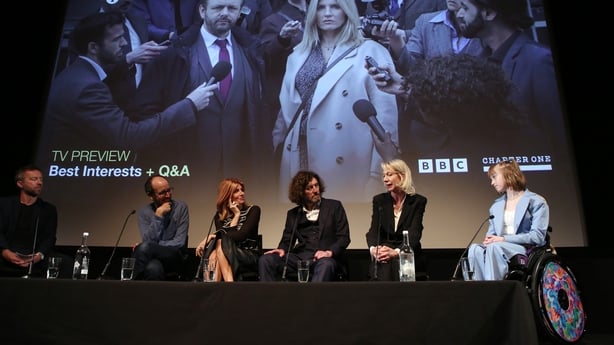Niamh Moriarty, who is 16, is on your screens and on a mission.
The Dublin actress, currently starring in BBC drama 'Best Interests' alongside Sharon Horgan and Michael Sheen, is passionate about advocating for diversity and disability inclusion in the television and film industry.
"When I was growing up, there were no characters in wheelchairs on my TV. I think if I'd seen that as a child, it would have blown my mind," she said.
The Transition Year student, who has cerebral palsy and uses a wheelchair, began acting when she was 11.
"I'd show up at auditions in my pink sparkly wheelchair and see if they had the guts to turn me away, and they never did," she said.
Niamh already has an impressive number of stage and screen credits to her name.
In 'Best Interests', her character Marnie has a rare form of muscular dystrophy.
She says it was "such a joy" to read a script which specifically requested that a disabled actor play the part.
"I was delighted to have the opportunity to work on this series with BAFTA Award-winning writer Jack Thorne, who is a brilliant advocate for diversity, and to share the screen with Michael Sheen and fellow Irish women Sharon Horgan and Alison Oliver.
"The production team made me feel right at home. My trailer was the only wheelchair accessible trailer in the UK at the time of filming. That really sparked something in me and made me determined to advocate for change.

"Everybody deserves to be seen and heard in the stories we tell. Everyone, no matter their experiences or abilities, should be able to look at a screen or stage and see themselves represented," she said.
Niamh is now turning her hand to writing. She plans to start developing her first short film soon.
"I think a big part of why a lot of people write is to create the stories they would have loved to have seen when they were younger or in the present. There are so many stories I wish I saw growing up and I'd love to be able to offer them from my perspective to a younger generation.
"I certainly hope that I am able to provide representation for younger people and I hope they will be able to see themselves in me."
Niamh is delighted to see improvements in inclusivity on-screen, but says there is still a long way to go.
"The writer of our show Jack Thorne once described disability as the forgotten diversity, and when I look at stories in the media now that have disabled characters in them, there is a long way to progress into making that invisible. I don’t think we need to point it out all the time.
"As a community, there is so much we can offer stories and we see people in the world in so much depth, but you don’t always have to acknowledge the character’s disability, we are a huge part of society and can just coexist and it doesn’t have to be a big hurrah."

Niamh hopes that seeing her on screen will encourage others to consider the industry as a career option.
"My disability is a part of me and it’s not something I wish to change, no matter how difficult it’s been growing up. It’s something unique I have to offer to the industry and I want to take that viewpoint and use my voice to change that narrative for other people.
"I hope that I will be able to use my voice of confidence to help other people to break into the industry too because it’s definitely possible."
Outside of the industry, Niamh would like to "open a broader conversation" about accessibility and disability.
"There are so many times I'll be out and the looks and gawks I get from people, it’s not the nicest feeling in the world, but I do wish people would just ask the question they want to ask, but also to ask the question kindly.
"I think sometimes people have a tendency to ask ‘what’s wrong with you?’ and I go ‘there’s nothing wrong with me, I'm a girl, I use a wheelchair to get around, that’s all, but if you’d like to ask me about my life experiences I'd be more than happy to tell you.’ I think opening the door to conversation is important."






